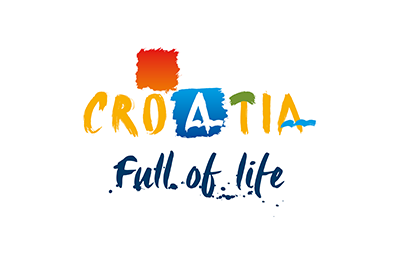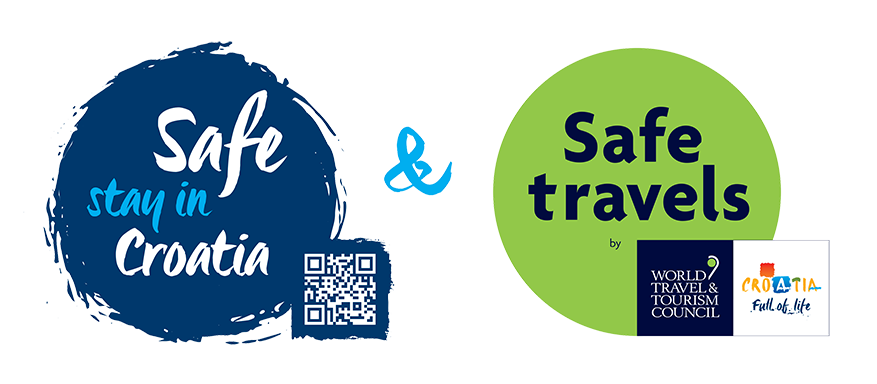Administrative position of the island of Vis
- The Republic of Croatia (the capital – Zagreb)
- The Split-Dalmatian County ( the headquarters in Split)
- The town of Vis, The town of Komiža
Language
Standard Croatian Language
Local dialect differing from the standard Croatian Language
Currency
The official currency in Croatia is the kuna (1 kuna = 100 lipa). Kuna ( 1 kuna= 100 lipa ) coins of 1,2,5,10,20,50 lipas and 1,2 and 5 kunas are in use and the notes of 5,10, 20, 50, 100, 200, 500, 1000 kunas. Foreign currency can be exchanged in banks, exchange offices, post offices and in the majority of tourist information offices, hotels and campsites. The banks are open from 8 a.m. - 20 p.m., on Saturday till 13p.m. In major cities some banks on duty are open on Sundays.
Credit cards
(Mastercard, Visa, American Express and Diners) are accepted in almost all hotels, marinas, restaurants, shops and cash machines.
Island of Vis, basic characteristics
- Area of the island: 90,3 sq. km
- Length of the coastline: about 77 km
- The highest peak: Hum 587 m
- Climate: Mediterranean
- Settlements: The town of Vis, the town of Komiža, Rukavac, Milna, Bargujac, Ženka (on the coast) - Podselje, Marine zemlje, Podšpilje,Podstražje, Plisko Polje, Žena glava, Podhumlje (in the interior of the island).
- Inhabitants: approx. 5000 inhabitants
- Time: Middle European
- Traffic: on the right side of the road
- Electricity: 220V/50 Hz
- Change of time: according to the Middle european model
A valid passport or some other identification document recognised by international agreement; for certain countries a personal identity card is sufficient (a document which testifies to the identity and citizenship of the bearer).
Information: Diplomatic missions and consular offices of the Republic of Croatia abroad or the Ministry of Foreign Affairs and European Integration of the Republic of Croatia.
More information:
Phone: +385 (0)1 4569 964
Email: stranci@mvpei.hr
Web page: www.mvpei.hr
Customs regulations in the Republic of Croatia are almost entirely harmonised with EU regulations and standards, but the value of those non-commercial items that are brought into the country for personal use and are exempt from tax duty or PDV (VAT), is limited to only 1,000 HRK (kuna).
Foreign and local currency and cheques may be freely taken in and out of the country by both foreign and Croatian citizens with foreign residence, but transfers of an amount of 10,000 Euros or more must be declared to a customs official. Valuable professional equipment and other technical devices must also be declared to a customs official at the border crossing.
VAT is refunded to persons who do not have permanent or temporary residence in Croatia, for individual goods purchased in Croatia, for amounts in excess of 740.00 HRK (Kuna), upon the presentation of a Tax Cheque form verified by a customs official during the export of purchased goods, at the latest 3 months from the day of purchase. Foreign nationals must claim Tax refunds within six months of the receipt issue date.
More informations
For additional information please contact the Customs Administration:
www.carina.hr
Roadside vehicle assistance: 1987 (When calling from abroad or by mobile phone, call +385 1 1987)
National Centre for Search and Rescue at Sea: 195
Unique National number for all emergency situations: 112
General information: 18981
Information on local and intercity numbers: 11880; 11888
Information on international numbers: 11802
Weather forecast and road conditions: 060 520 520
Croatian Automobile Club (HAK): +385 1 4640 800 E-mail: info@hak.hr Web: www.hak.hr
International country code for Croatia: +385
Ambulance: 194
Firefighters: 193
Police: 192
- 1. January - New Year's Day
- 6. January - Epiphany
- 4. April - Easter Sunday & Easter Monday
- 1. May - Labour Day
- 30. May - Independence Day
- 03. June - Corpus Christi
- 22. June - Anti-Fascist Resistance Day
- 5. August - Victory Day and National Thanksgiving Day
- 15. August - Assumption Day
- 1. November - All Saints' Day
- 18. November - Memorial Day for the victims of the Homeland War
- 25.-26. December - Christmas Holidays
The import of live animals
The transport of house pets across state borders is possible only with the necessary veterinary documentation certifying the animals' state of health. Cats and dogs must be fitted with an electronic identification system (microchip). Up to five pets can be imported at border crossings approved for the circulation of certain house pets, whilst the import of larger numbers of animals must be made at a border crossing where there is a border veterinary inspection.
When travelling with your pet, you are responsible for it
When bringing your pet into the Republic of Croatia, it is your responsibility to meet all the conditions necessary for its importation. Please check, for instance, whether your pet has been vaccinated, that is, re-vaccinated, on time, whether an antibody titer test has been performed and whether it has a valid passport or veterinary certificate. If your pet does not meet these criteria, then your entry into the Republic of Croatian may be denied, that is, your pet can be returned to the country of origin or quarantined at the permitted border crossing. The owner will bear all costs arising from the implementation of these measures.
In line with the Regulations on veterinary conditions for the non-commercial transportation of pets, the following animals species are considered as pets: dogs, cats, pet ferrets (Mustela putorius) from the marten family (Mustelidae), invertebrates (except for bees and crayfish), ornamental tropical fish, amphibians, reptiles, all bird species (except for poultry), rodents and rabbits.
Maximum number of animals
The importation of a maximum of five animals can be considered as non-commercial. The animals must be subjected to an identification and document inspection by a customs official at a border crossing of the Republic of Croatia. These animals will not be considered a commodity and must be accompanied by their owner or a person authorised by the owner to accompany them for the entirety of the trip.
Conditions
General import conditions for dogs, cats and tame martens (also called domestic ferret, white ferret, African ferret, weasel, skunk, tamed ferret, domestic weasel or tamed weasel – Mustela putorius) coming from EU member states and low-risk countries outside the EU:
- Dogs, cats and ferrets
- They must be fitted with an electronic identification system (microchip). If the animal is fitted with a microchip that is not in line with the ISO Standard 11784 or 11785, the owner must provide the appropriate microchip scanner. The name and address of the animal's owner must be determinable at all times. The animal's passport or certificate, which is transported with the animal, needs to contain the microchip number which has been issued by a veterinarian.
- They must be accompanied by a passport or certificate issued by a veterinarian authorised by the relevant body.
- They must be vaccinated against rabies
- Dogs, cats and members of the marten family coming from high-risk countries must fulfil the following conditions:
- They must be fitted with an electronic identification system (microchip)
- They must have a veterinary certificate issued by an official veterinarian or, at re-entry, a passport (dogs from Croatia)
- They must be vaccinated against rabies
- They must have undergone a test on the neutralization of antibodies with the titration of antibodies equalling at least 0.5 IJ/ml on a sample taken by a certified veterinarian, in a certified laboratory, 30 days after vaccination at the earliest and three months prior to transfer. A list of authorized facilities can be found at the following web page: http://ec.europa.eu/food/animal/liveanimals/pets/approval_en.htm.
The stipulated period of three months is not applicable in the case of the re-entry of pets from the Republic of Croatia whose passport confirms that the titration of antibodies with a positive result was carried out before the animal left the Republic of Croatia.
Animals imported commercially, and those being shipped as a parcel, need to be examined by a veterinarian prior to shipment.
More information
For additional information please contact the Ministry of Agriculture, Fisheries and Rural Development – Administration for Veterinary Medicine Phone. +385 1 6109 499; +385 1 6106 703 and +385 1 6106 455; web: www.mps.hr).
Radio news in foreign languages during the tourist season
Croatian Radio broadcasts programmes in foreign languages designed for tourists in Croatia on several frequencies.
A daily programme is broadcast at 8:05 pm on Channel One, in English, for a duration of approximately 10 min.
During the summer season, Channel Two of the Croatian Radio (98,5 Mhz – northwestern Croatia and the Dubrovnik Littoral; 105.3 Mhz – Istria; 96.1 Mhz – Split; 98.9 Mhz – the Makarska Littoral; 93.3 Mhz – Gorski kotar) will broadcast, in addition to regular news and reports from HAK (the Croatian Automobile Club) in Croatian, traffic information in English and German, and in August, also in Italian. Traffic and congestion alerts from HAK are broadcast in Croatian and English.
During the summer period, on Channel Two of the Croatian Radio, news is broadcast every hour from the Third Channel of Austrian Radio and Bayern 3 in German, RAI Uno in Italian, Radio Prague in Czech, Absolute Radio in English and from the International Station of Croatian Radio – "Voice of Croatia" also in English, German and Spanish.
During the summer, Radio Prague reporters broadcast news for their nationals staying in Croatia via the following regional radio stations: Radio Split, Radio Dubrovnik and Radio Rijeka.
Outdoor activities
- Tell relatives or friends the route and plan of your journey
- Walk on marked paths and trails
- Take sufficient quantities of water with you
- Prepare adequate clothing and footwear
- Prepare mobile telephone devices
- Monitor weather forecasts
- Handle open fires carefully and in line with regulations
- Do not throw cigarette butts or flammable objects outside
Fire prevention
- Check that you have undertaken all the necessary measures to prevent fire!
- Do not throw burning or inflammable objects into the environment!
- Observe signs forbidding the lighting of fires!
- Take care that your parked vehicles do not obstruct fire fighting vehicle approaches and access roads.
What should you do in case of fire?
- Immediately notify the fire brigade of the fire on the telephone number 112. Use a hand-held fire extinguisher (if one is available) and only attempt to extinguish the fire if doing so does not endanger you or others.
- Notify people in the area about the fire.
- FOLLOW THE INSTRUCTIONS GIVEN BY THE FIRE BRIGADE
REMEMBER
Non compliance with fire protection regulations will result in the Ministry of Internal Affairs raising a violation report or imposing a fine on the perpetrator.
On the road
- Avoid traffic jams during the peak tourism season and driving at weekends and holidays,
- Be well rested when driving,
- Adjust your speed to the conditions on the road and the speed limits,
- In the event of a traffic jam, be patient and take sufficient quantities of water with you.
At sea
- In case of an accident or sea pollution, call 9155 (National Headquarters for Search and Rescue at Sea) or 112.
- Before setting sail, inform yourself of the weather forecast, especially for the Adriatic,
- While swimming, stay in sight of other swimmers,
- Inform family and friends of the approximate location in which you will be diving and mark the area appropriately,
- Moderate your exposure to the sun and use protective mediums
- Do not overestimate your own capabilities,
- Have sufficient quantities of drinking water with you.
Environmental protection
- The protection of biodiversity is in compliance with valid EU regulations.
- With regards to swimming, the waters of the Croatian Adriatic Sea are of a high quality according to EU criteria.
In the event of environmental pollution, please phone 112.










